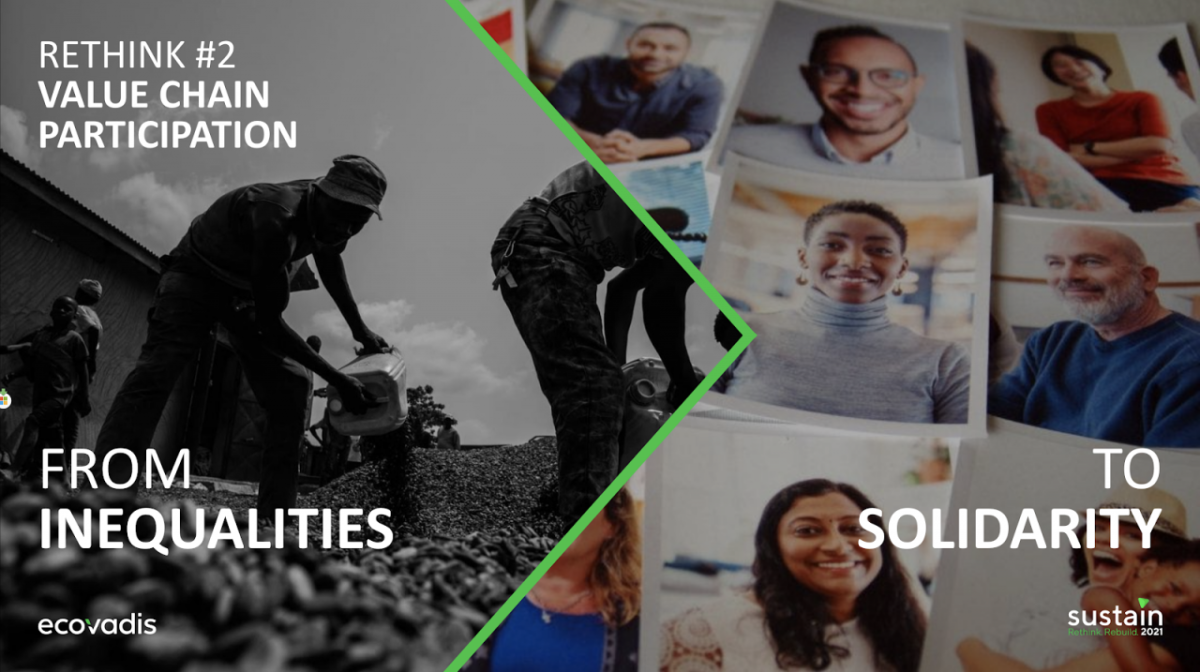From Inequity to Solidarity: Rethink Value Chain Participation

The pandemic has exacerbated deep-rooted social and racial inequities, opening the door for new conversations on how we can build a more equitable future. The events of 2020 have elevated the importance of ESG’s “social” pillar for companies and their stakeholders. As factories scrambled to ramp up production despite staff shortages and government lockdown measures, supply chains were exposed to even greater risks associated with working conditions, health and safety, workers’ rights, child labor and modern slavery.
But the acceleration in inequities is seen not only among individuals and communities but also among businesses. While some are faring well despite the turmoil, others have suffered immensely and may never recover. We must rethink how we grow inclusively through solidarity in our ecosystems.
Fortunately, we are already seeing signs of such solidarity. Some companies have stepped up to provide financing and immediate payments to cash-strapped suppliers. Other companies have been sharing workforces and repurposing production lines to address health equipment shortages.
Going forward, responsible purchasing practices will be key to ensuring the resilience of our ecosystems. In addition, by promoting supplier diversity and more diversity in the workforce of our trading partners, we can strengthen our communities.
Read more on this and the other Four Factors to Rethink in Global Supply Chains So We Can Rebuild Better.

